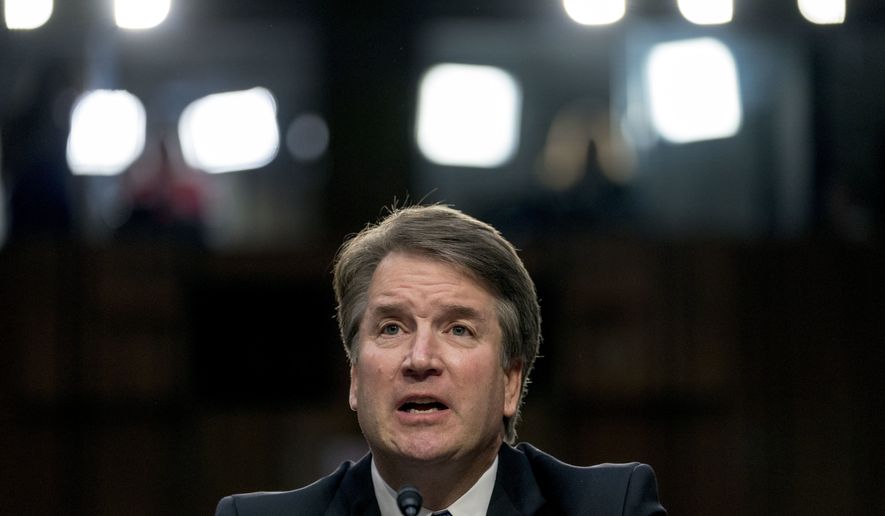Judge Brett M. Kavanaugh made some significant legal news during his confirmation hearing when he suggested his thinking on privacy in the digital age has evolved.
Just a few years ago, he upheld the government’s bulk collection of telephone data, ruling that once Americans turned over their data to an outside party — in this case, their phone companies — the government could have at it.
But in his confirmation hearing last week, Judge Kavanaugh said he likely wouldn’t make that ruling now, after Chief Justice John G. Roberts Jr. paved new ground this year in the Carpenter case, ruling that people don’t give up their privacy interests to their data merely by involving a third party.
“Now when all of our data is in the hands of a business, a third party, and the government obtains all your data — all your emails, all your texts, all your information, your financial transactions, your whole life is in the hands of a data company and the government gets that, your privacy is very well affected,” Judge Kavanaugh told senators.
“And that’s the importance, I think, of the Carpenter decision is that it recognizes that change in understanding, of our understandings of privacy. And I think going forward, that’s going to be a critical issue.”
He said he couldn’t have made his same ruling on bulk collection now, given the Carpenter case.
Senators from both parties were deeply interested in the judge’s evolution. They prodded him on how he sees privacy interests advancing in the digital age.
“Privacy is disappearing and, frankly, privacy is important,” Sen. Patrick J. Leahy, Vermont Democrat, told Judge Kavanaugh.
The Carpenter decision was a 5-4 ruling with Chief Justice Roberts joining the court’s four Democrat appointees.
In dissent was Justice Anthony M. Kennedy — who has since retired, leaving the vacancy Judge Kavanaugh has been nominated to fill, perhaps giving reinforcements to the pro-privacy majority on the court.
“Carpenter itself seems no less safe with Justice Kavanaugh on the court than it was with Justice Kennedy,” said Shaun Spencer, a law professor at the University of Massachusetts.
Judge Kavanaugh told senators that while the Fourth Amendment protections of privacy haven’t changed, technology has, and that “requires us to understand it as we apply Fourth Amendment doctrine going forward.”
Some civil liberties advocates, though, said they remain worried that Judge Kavanaugh wouldn’t be on their side.
They pointed to his rationale for the 2015 ruling upholding bulk data collection. He said the government had a “special need” to prevent terrorist attacks, which was a viable exception to the requirement that the government obtain a warrant before conducting a search.
“He did not disavow or even discuss that,” said Elizabeth Goitein, a civil liberty advocate at the Brennan Center. “I was not reassured by his comments.”
Susan Freiwald, a law professor at the University of San Francisco, also worried about Judge Kavanaugh’s lack of a firm rejection of the terrorism exception in his bulk collection ruling.
“There is no precedent to support that expansive view of government surveillance power and, in fact, the Supreme Court has expressed concern about the government using ’domestic security’ to justify surveillance based on political views,” she said.
But Mitchell Rubinstein, a New York-based lawyer, said the exchange between Judge Kavanaugh and Mr. Leahy was important because the nominee called the Carpenter case a “game changer.”
“It appears that a Justice Kavanaugh will recognize the importance of privacy in many different areas that are likely to come up because of the explosive use of technology in this country,” he said.
Mr. Rubinstein noted that Sen. Ben Sasse, Nebraska Republican, praised Mr. Leahy’s questioning.
He said it may have been the “most striking and perhaps the most significant part” of the confirmation hearing.
“There was a discussion about the past and the future and not about the political left or right,” Mr. Rubinstein said.
• Alex Swoyer can be reached at aswoyer@washingtontimes.com.




Please read our comment policy before commenting.